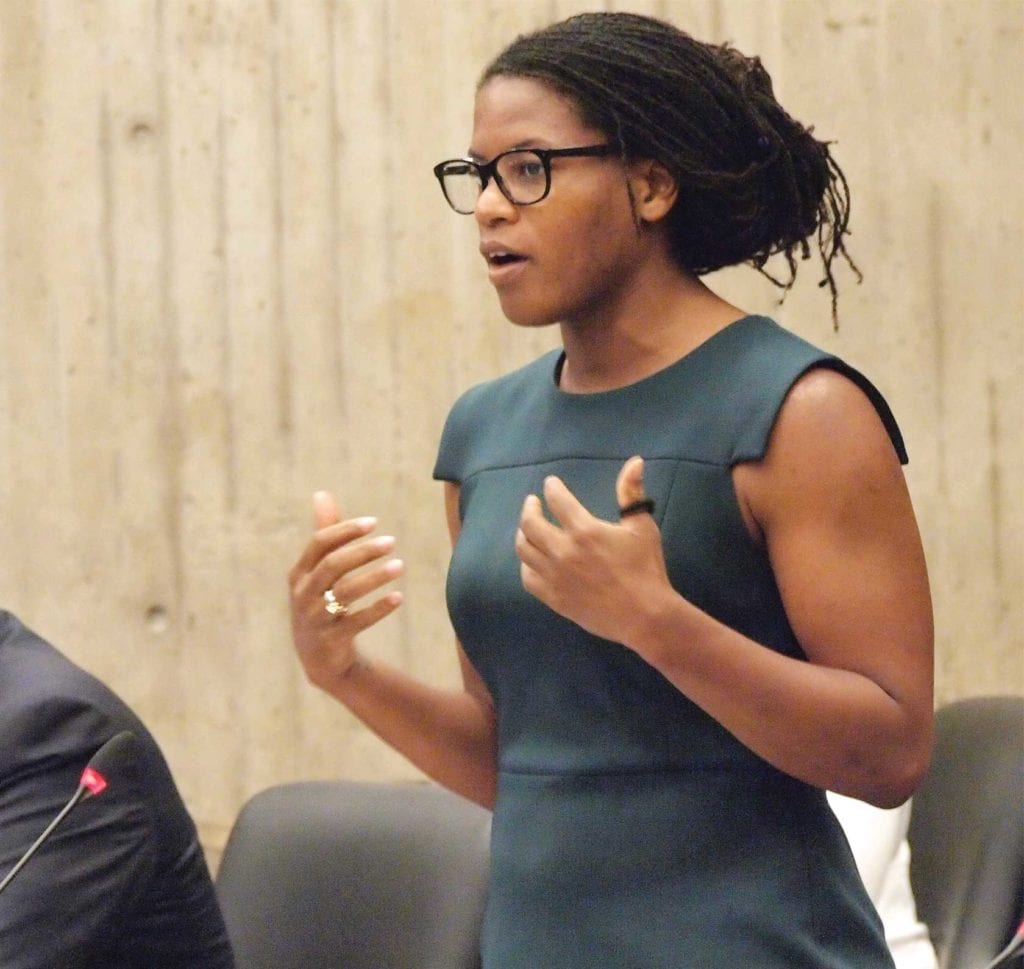
The Boston City Council held a hearing Thursday to discuss a ballot question that could change the city’s charter. Councilor Lydia Edwards has filed an amendment that could give the council and residents greater input in the budget process, and if the city council passes the amendment, voters would voice their opinion in fall 2021.
The current process allows for the mayor to propose a budget, and the council to vote on it. The city council cannot vote on line items of the budget or introduce a budget.
The council lost the right to introduce a budget in 1909. While Edwards said she cannot deny that Boston’s budget system is better than the past, “for a lot of Bostonians, that’s not true,” she said.
“The Mayor and City Council of the City of Boston shall hold equal budgetary authority,” the proposed amendment reads. “Not later than the second Wednesday in June, the city council shall take definite action on the annual budget, by adopting, amending or rejecting it.”
If they do not act on it, the mayor’s budget is automatically adopted, and vice versa — If the mayor does not act on the council’s rejection or amendments of the budget, the council’s recommendations are adopted.
Edwards’ amendment would give the city council power to introduce a budget at any time before the original mid-April deadline, allowing councilors to advocate for their district’s specific needs on line items.
“This allows for city councilors to hear directly about what their constituents are dealing with. The status quo is not working,” she said.
Councilors Andrea Campbell, Ricardo Arroyo, Michael Flaherty and others voiced their support for the discussion, but Councilor Frank Baker was in strong opposition to the amendment.
“First-year councilors looking to come in and change the whole budget process, I think they should maybe start to learn some of the departments and what they do,” Baker said, telling Edwards that Boston’s budgeting process is “far better off than most.”
Edwards stressed that the proposal is “not an either-or, it’s in addition to” the current budgeting process. She noted that she has been in communication with the Walsh administration about crafting a ballot question on the city charter change. Administration officials sent a letter in lieu of attending the hearing, stating “Such a change would impact how departments create their annual budgets and change the city’s bond rating, which influences our ability to borrow money.”
Armani White, representing the Center for Economic Democracy, said that by allowing the council to guide monetary decisions, they can allocate more resources to address the wealth gap in neighborhoods like Roxbury and Mattapan.
“Voters deserve a process that includes public deliberations,” White said.
Baker said it is the council’s job to speak with the city’s departments and gauge their plans for the upcoming fiscal year, and insisted that other councilors are downplaying that relationship.
But Councilor Julia Mejia said the current process leads to “horse trading” that disadvantages councilors and their constituents.
“It is that kind of politicking that stops us from making sure we’re allocating the right resources,” Mejia said.
The council is far from a vote on this amendment, and Edwards says it is too early to draw lines in the sand, especially when the discussion is centered on the public voting on this and possibly saying no in 2021. If approved by a citywide vote, the amendment would affect fiscal year 2022, but before that, the attorney general must verify its constitutionality.






